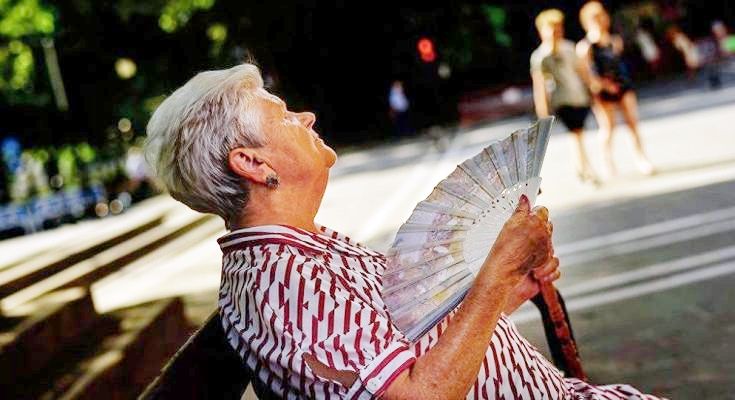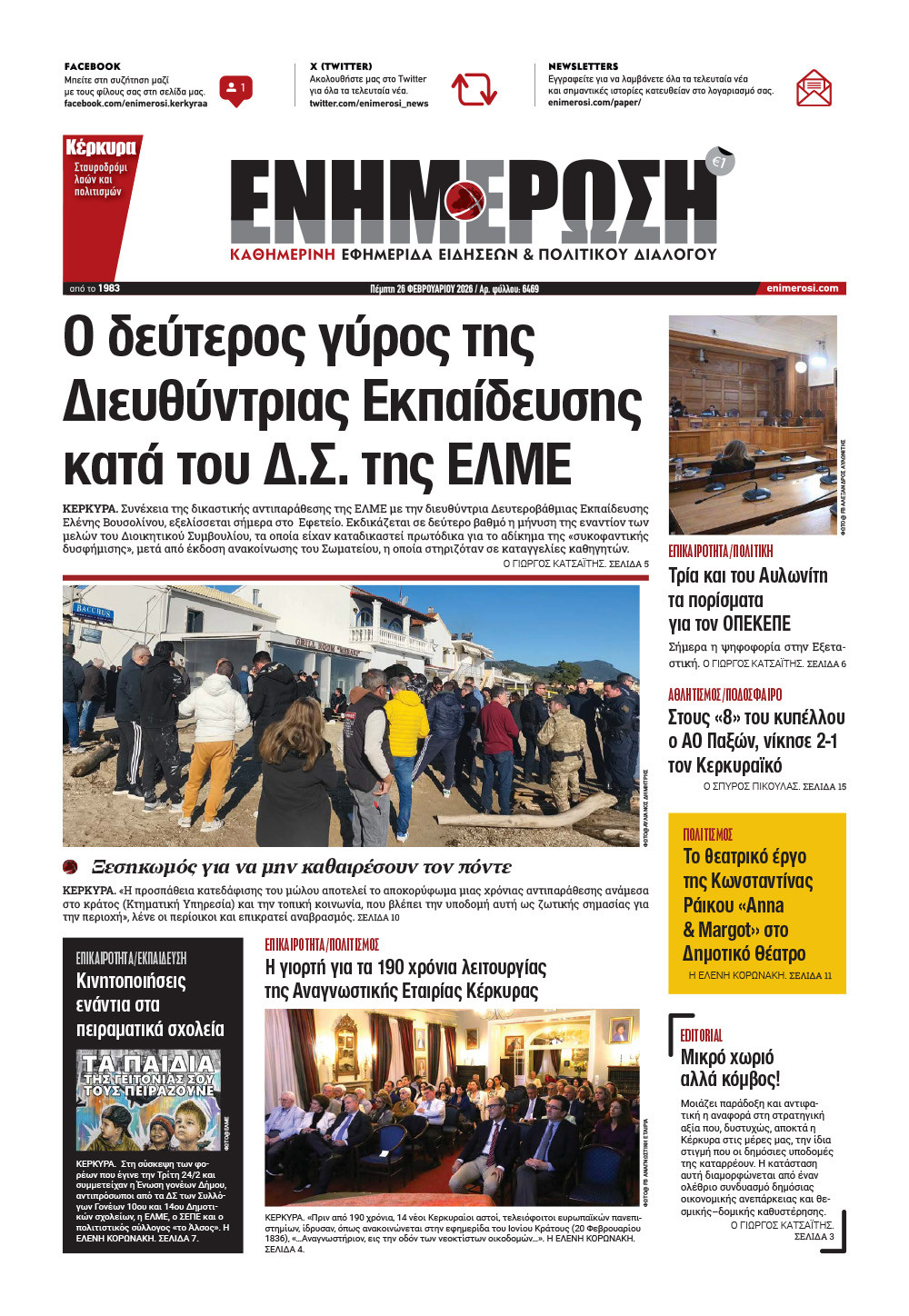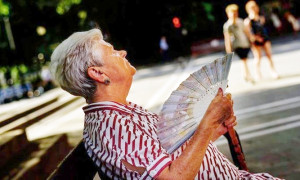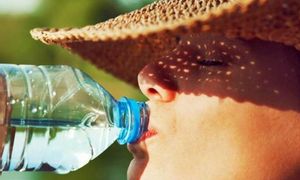Corfu Medical Association: Guidelines for protection from heatwave

CORFU. Guidelines to citizens and especially vulnerable groups.
In view of the heatwave "Cleon", the Corfu Medical Association is drawing attention, especially to the vulnerable groups of the population, to strictly follow the precautionary measures to prevent pathological conditions caused by high temperatures, especially during the heatwave, and to protect their health.
This heatwave falls under Dangerous Weather Phenomena and is expected to last at least six days, with the hottest days being Friday (14/7) and Saturday (15/7).
The most important development of the body's disorders caused by high temperatures is heatstroke, which occurs after prolonged exposure to the sun, especially during a heatwave, and due to a sudden increase in body temperature (>40-41°C). Symptoms include red and dry skin, intense thirst, alteration in behaviour, seizures, loss of consciousness and coma.
According to the guidelines for self-protection from high temperatures, it is recommended that citizens:
- Stay in cool and shaded areas away from crowds, use air conditioners or fans, and avoid heavy physical work in areas with high temperatures, no wind and high humidity.
- Avoid sunbathing, as well as walking or running in the sun, and wear a hat, sunglasses and light-coloured clothing made of a porous material in order to facilitate the airing of the body and the vaporisation of sweat.
- Eat light meals with fruit and vegetables, limiting fats and the amount of food.
- Drink plenty of water and fruit juices, avoiding alcohol.
Special care is recommended for babies and young children, as well as the elderly and those suffering from chronic diseases, to protect them from high temperatures.
People on medication, especially those taking diuretics, sedatives, antihypertensives, antihistamines, beta blockers, etc., should be in constant contact with their doctors in order to receive the appropriate instructions.
Those suffering from diseases of the cardiovascular, central nervous and respiratory systems, diabetics, kidney patients, alcoholics and those suffering from all kinds of serious diseases should also be in constant contact with their doctors.
The President Dimitris Kaloudis
The General Secretary Anastasia Apostolidou










